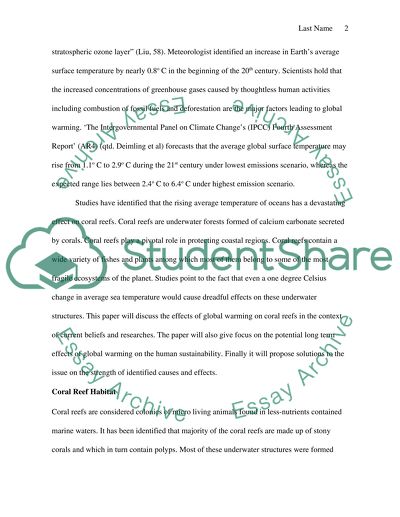Cite this document
(“The Effects of Global Warming on Coral Reefs Research Paper”, n.d.)
Retrieved from https://studentshare.org/biology/1396050-the-effects-of-global-warming-on-coral-reefs
Retrieved from https://studentshare.org/biology/1396050-the-effects-of-global-warming-on-coral-reefs
(The Effects of Global Warming on Coral Reefs Research Paper)
https://studentshare.org/biology/1396050-the-effects-of-global-warming-on-coral-reefs.
https://studentshare.org/biology/1396050-the-effects-of-global-warming-on-coral-reefs.
“The Effects of Global Warming on Coral Reefs Research Paper”, n.d. https://studentshare.org/biology/1396050-the-effects-of-global-warming-on-coral-reefs.


